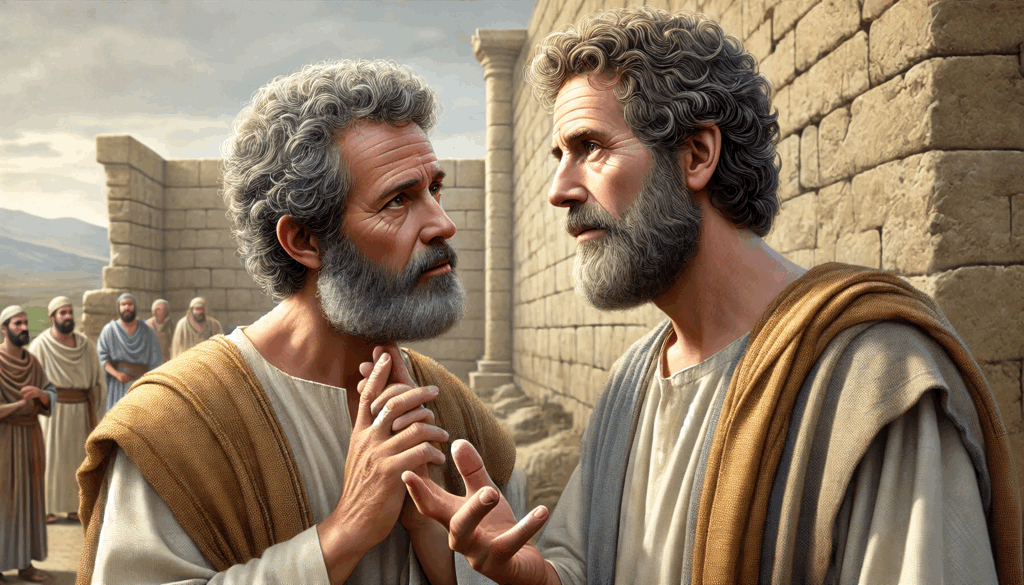Introduction
Galatians 2 offers profound insights into early Christian debates, highlighting Paul’s unwavering defense of the gospel’s freedom. This chapter is more than a historical recounting; it’s a call to recognize the sufficiency of Christ’s sacrifice and resist any tendency to add human efforts to salvation. As we explore this passage, we’ll uncover its theological depth, its application to modern faith, and why it remains relevant for believers today.
The Jerusalem Visit: A Meeting of Apostolic Minds
Fourteen years after his conversion, Paul revisited Jerusalem, accompanied by Barnabas and Titus. This trip, prompted by divine revelation, was pivotal. Paul presented his gospel to the Gentiles, ensuring alignment with the apostles in Jerusalem. Central to this meeting was the controversy over whether Gentile converts needed to follow Jewish laws, particularly circumcision.
Titus, a Greek Christian, was not compelled to be circumcised, showcasing the early church’s affirmation of freedom in Christ. False brothers infiltrated the church, attempting to impose Jewish laws on Gentile believers. Paul resisted, emphasizing that salvation is by faith alone, not by works of the law.
Confrontation with Peter: Standing for Truth
A dramatic moment unfolds in Antioch when Paul confronts Peter for hypocrisy. Initially, Peter freely associated with Gentile Christians. However, when certain men from James arrived, Peter withdrew, fearing criticism from the “circumcision party.” This action misled other Jews, including Barnabas.
Paul publicly rebuked Peter, highlighting the inconsistency of imposing Jewish customs on Gentiles. His words were sharp: “If you, a Jew, live like a Gentile, how can you compel Gentiles to live like Jews?” This confrontation underscores the gospel’s unifying truth: salvation is for all, irrespective of heritage.
The Doctrine of Justification by Faith
Paul’s argument pivots to a foundational truth: justification comes through faith in Christ, not adherence to the law. The law reveals sin but cannot save. Using the metaphor of a scale, Paul illustrates that the law measures our shortcomings but lacks the power to absolve them. Only through Jesus’ sacrifice can humanity achieve righteousness.
This principle has profound implications for modern believers. It challenges us to trust in Christ’s sufficiency and avoid the trap of performance-based faith. It also reassures us that God’s grace, not our actions, secures our salvation.
Application: Balancing Freedom and Obedience
Paul’s teaching might lead some to question the role of good works. While they do not save, they are evidence of a transformed life. Like a marriage vow, faith requires demonstration through actions. Living a godly life protects us from sin’s enslavement, acts as a witness to others, and expresses gratitude for Christ’s sacrifice.
In our culture, the pressure to perform can overshadow faith’s simplicity. Paul’s words remind us that Christ’s work is sufficient. However, this freedom calls us to live responsibly, reflecting God’s love and holiness.
Conclusion
Galatians 2 challenges believers to embrace the gospel’s freedom while living in obedience to God. Paul’s boldness in defending the truth, even against a fellow apostle, demonstrates the importance of aligning actions with beliefs. For modern Christians, this chapter serves as a reminder that faith in Christ alone justifies us, and our lives should reflect that transformative truth.

